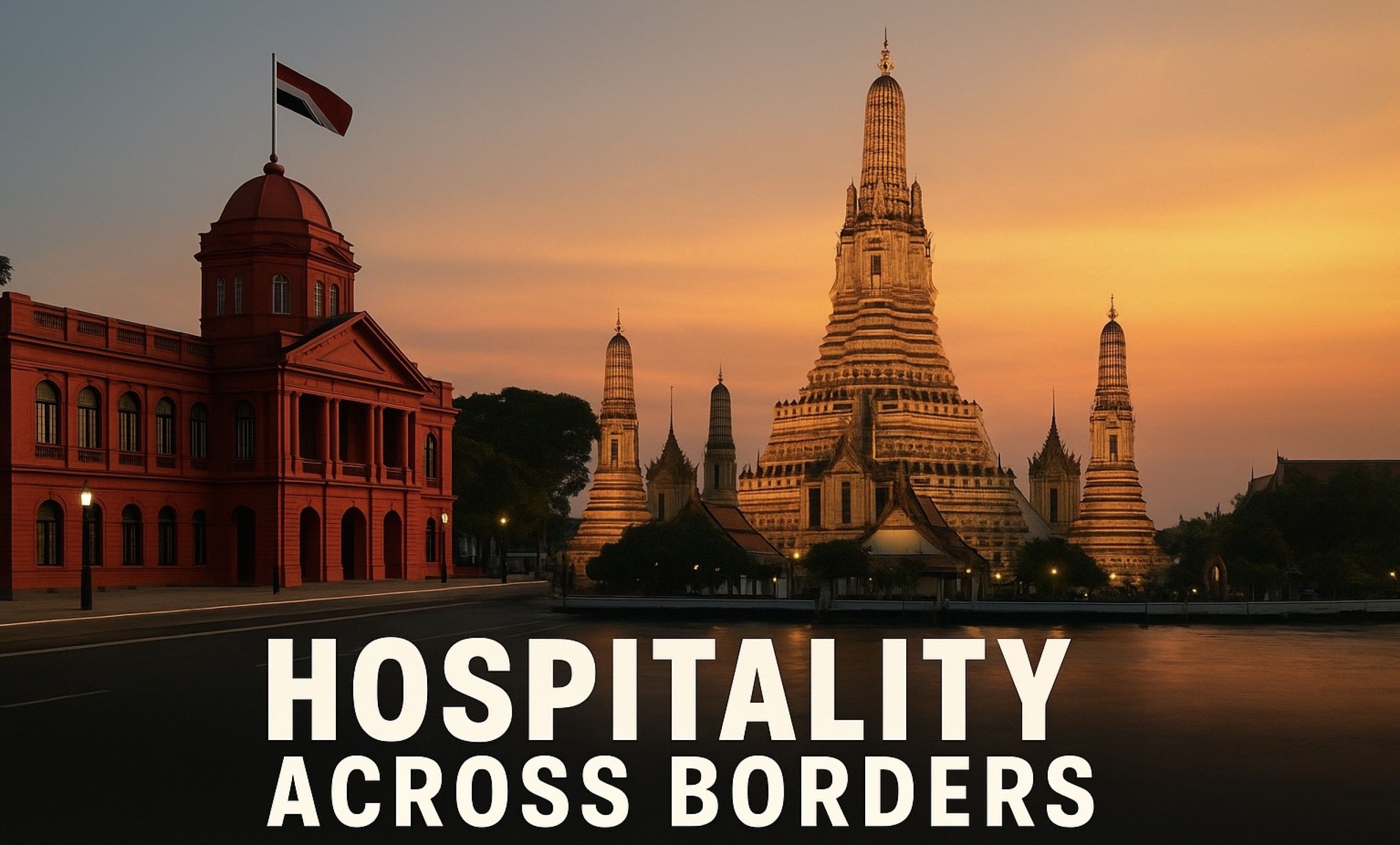
Why Trinidad’s & Tobago’s Tourism Problem Isn’t About Marketing Spend — It’s About Strategy
Last week, a headline about Trinidad and Tobago’s tourism industry caught my attention.
It called for greater government investment in destination marketing, a reflex to the downturn in visitor numbers.
But here’s the truth: tourism in Trinidad & Tobago is rarely a national priority.
It’s often treated as a peripheral topic rather than a core pillar of development.
That’s precisely the problem.
Because what Trinidad & Tobago needs right now isn’t more marketing money, it needs an actual tourism development strategy.
The issue isn’t visibility. It’s vision.
Visibility Without Vision
Increasing marketing spend without fixing what’s underneath is like repainting a cracked wall — it may look better temporarily, but the structure remains weak.
The modern day traveler doesn’t decide based on ads.
They’re moved by ecosystems — trust, accessibility, and consistency of experiences across every touchpoint. Their decisions are shaped by perception, reliability, and how easily they can plan and book with confidence.
If our marketing continues to outpace our management, all we’re doing is amplifying misalignment.
The problem isn’t that people don’t know about Trinidad.
It’s that the promise we market doesn’t yet match the experiences delivered.
Lessons from Asia
Living and traveling around Asia has given me a front-row seat to how an emerging economy became one of the world’s strongest tourism powerhouses, not because of lavish campaigns, but because of strategic alignment.
Countries like Thailand treats hospitality like a national discipline.
From a street cart vendor to a luxury resort, there’s pride, polish, and digital presence. Tourism isn’t a department, it’s a system, supported by policy, people, and purpose.
Three principles define Thailand’s success:
1. Policy Alignment – The Destination Thailand Visa (DTV) program was created for long-stay visitors, freelancers, and digital nomads. Within its first year, it drew more than 35,000 applications, proving that when policy meets global trends, results follow.
2. Cultural Consistency – Hospitality isn’t conditional. It’s embedded in identity. Regardless of price point, service standards remain high and sincere.
3. Digital Integration – Every touchpoint, from online discovery to local experience — is integrated. Booking and digital payment systems, align to sustain trust.
Thailand did not outspend the world.
It out-strategized it.
Trinidad & Tobago’s Challenge: Building an Ecosystem
The problem isn’t lack of talent, it’s lack of structure.
We have everything the world envies: creativity, diversity, rhythm, and warmth. But we treat these strengths as isolated assets, not as part of a coherent ecosystem.
We talk about tourism in segments, not systems.
Marketing here, infrastructure there, private sector somewhere else.
To compete globally, we must shift from departmental thinking to collective thinking.
That means recognizing tourism as an economic catalyst, one that influences education, technology, real estate, culture, and community.
While emerging markets like Thailand, and Vietnam are integrating these dimensions, Trinidad & Tobago still treats tourism as an afterthought, a missed opportunity hiding in plain sight.
From Marketing to Management
If we want to attract international travelers, we must deliver international consistency.
That begins with:
• Digital readiness — ensuring travelers can find, book, and communicate seamlessly.
• Training and standards — ensuring every guest experience feels reliably excellent.
• Public-private collaboration — bridging government frameworks with operator insight.
• Data-driven decisions — building strategies on traveler behavior, not assumptions.
Marketing sparks curiosity.
Management sustains trust.
Until those two work together, we’ll keep losing market share to destinations that understand tourism as a discipline, not a department.
The Borderless Opportunity
Trinidad & Tobago’s most overlooked advantage lies in its diaspora and global networks.
There are Trinibagonians across the world with properties, and capital waiting for viable pathways to participate in the country’s hospitality economy.
Imagine if we created systems that allowed them to own or manage properties remotely supported by verified local teams, with service standards that guarantee quality and trust.
That’s the essence of my Hospitality Across Borders community:
A borderless model of hospitality that connects global investors.
It’s not about exporting people.
It’s about exporting excellence.
A Global Call to Think Bigger
If Trinidad & Tobago truly wants to grow, it must stop comparing itself to its neighbors, and start benchmarking against the world.
The path forward isn’t about visibility; it’s about vision.
It’s about building systems that make success sustainable.
It’s about learning from countries like Thailand that turned hospitality into a national export and strategy into a superpower.
Because the future of tourism won’t reward those who market the most.
It will reward those who build the best.
Final Word
I relocated to Asia to study what works, to see how emerging markets build ecosystems that empower citizens, attract investment, and scale culture into global value.
And I’ve seen what’s possible.
Trinidad & Tobago, on the other hand, still relies heavily on short bursts of promotional activity rather than an integrated year-round strategy.
We have the talent, and culture to compete, but not yet the ecosystem. We need to stop thinking regionally and start acting globally.
While the recent industry discussions have called for “tourism reform” — but much of that conversation still centers on marketing spend and promotional activity.
True reform goes deeper.
It’s not about running more ads, it’s about building systems that make those ads believable.
Reform means modernizing how we manage data, design guest experiences, and align policy with people on the ground. It means professionalizing operations, not just promoting them.
Until we fix the structure, no amount of marketing can transform the outcome.
Because the future of tourism isn’t about marketing spend. It’s about strategy.